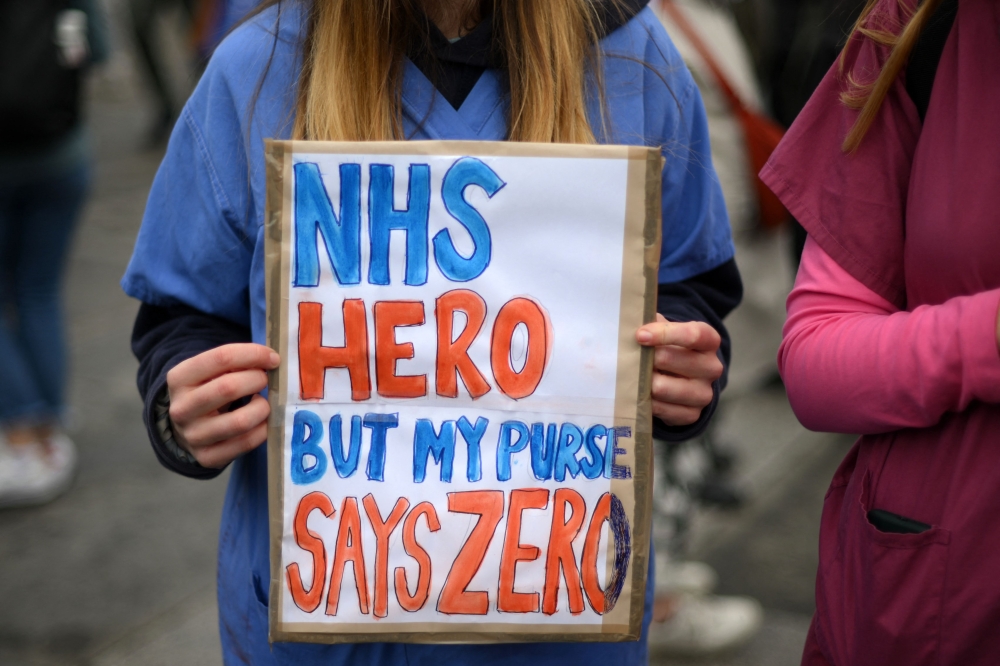LONDON, April 12 — Doctors working in England’s public health service yesterday launched what has been billed as the most disruptive strike in its history, in a dispute over pay and working conditions.
The four-day walkout, which began at 7am, follows months of strikes by other public and private sector staff as inflation sparks the UK’s worst cost-of-living crisis in a generation.
The action by so-called junior doctors — physicians who are not senior specialists but who may still years of experience — comes after a three-day stoppage last month and several strikes by nurses.
It threatens to be the most serious walkout yet and lead to the cancellation of hundreds of thousands of appointments.
They are demanding a pay rise of 35 per cent, which they say is needed to help make up for more than a decade of salary cuts in real terms.
They also argue pandemic backlogs coupled with staff shortages are massively increasing workloads, endangering patients.
“We have had a massive pay cut and we are filling more gaps because people are leaving,” said junior doctor Katrina Forsyth, who added she sometimes wept after shifts.
“It’s becoming less safe for patients,” she said from a picket line after finishing a night shift at St. Thomas’ Hospital in London.
The government maintains the BMA’s request is unaffordable, as ministers try to dampen wage demands across the public sector amid stagnant growth and high inflation.
After slowing for three straight months, the Consumer Prices Index shot up to 10.4 per cent in February — close to 40-year highs and more than five times the target set by the Bank of England.
“I hoped to begin formal pay negotiations with the BMA last month but its demand for a 35 per cent pay rise is unreasonable,” said Health Secretary Steve Barclay.
“If the BMA is willing to move significantly from this position and cancel strikes we can resume confidential talks and find a way forward, as we have done with other unions.”

‘Immense pressures’
Barclay struck a deal last month with unions representing various health workers, including nurses, to increase pay by five percent.
Union members are currently voting on whether to accept it.
However, the deal does not cover junior doctors, who comprise around half of all NHS doctors, according to official figures.
Their latest walkout will pile “immense pressures” on the service, NHS England medical director Stephen Powis warned.
“This is a significant set of industrial action that’s going to cause major disruption,” he told BBC radio.
The strike affects the NHS in England but not in the UK’s other regions.
Up to a quarter of a million appointments could be postponed, according to the NHS Confederation, which represents the system in England, Wales and Northern Ireland.
Family doctors are also reported by British media to be closed for appointments for up to a week, as GPs are drafted in to provide cover.
Powis said the NHS is “working very hard” to ensure emergency services are staffed but that cover was “fragile” and “routine care will be affected”.
Phil Sutcliffe, 75, of south London, was among those affected, with his cancer check-up appointment postponed to next month.
But he joined the St Thomas’ Hospital picket line, organised by the British Medical Association (BMA).
“These doctors do the most fantastic job for very modest pay... so the government needs to get to the negotiating table and start talking,” he said. — AFP






















